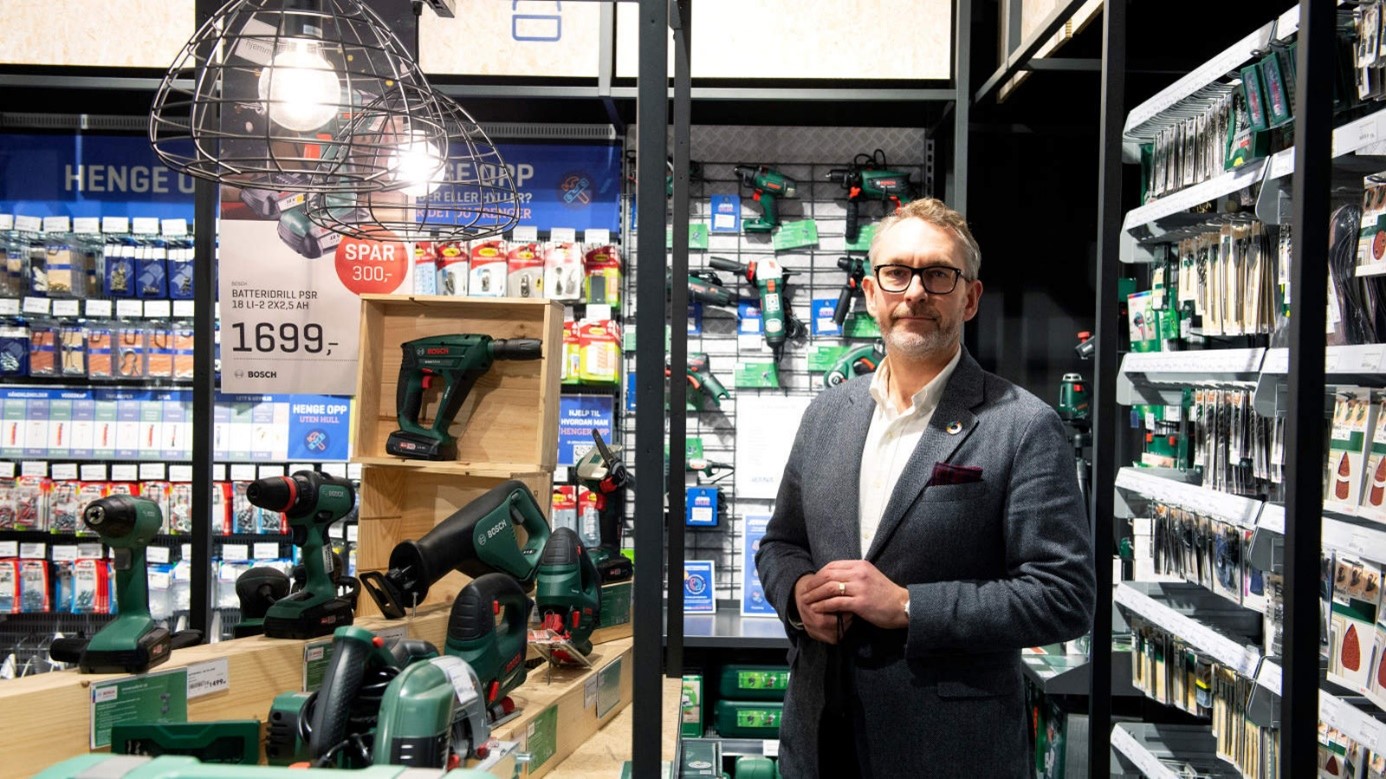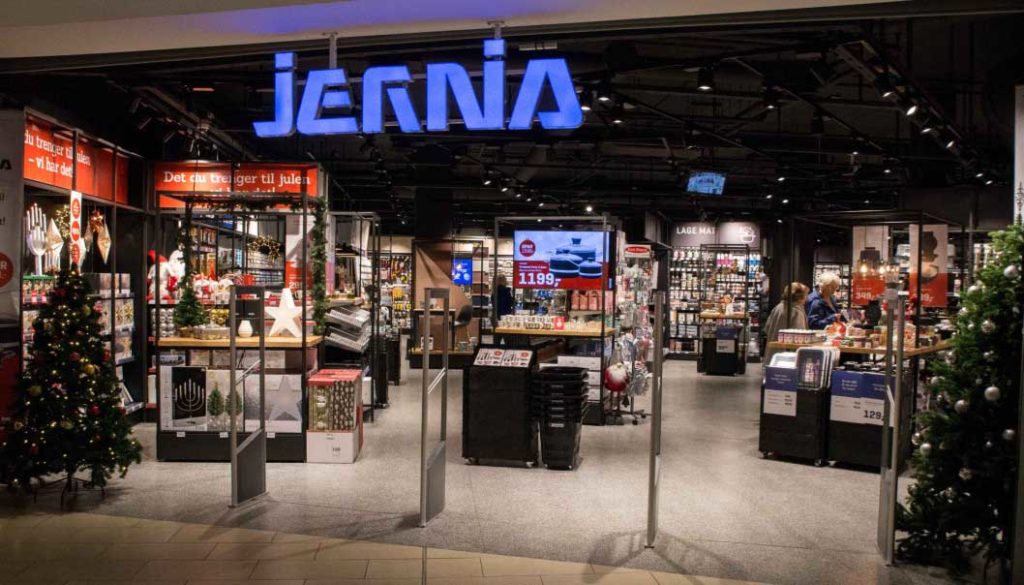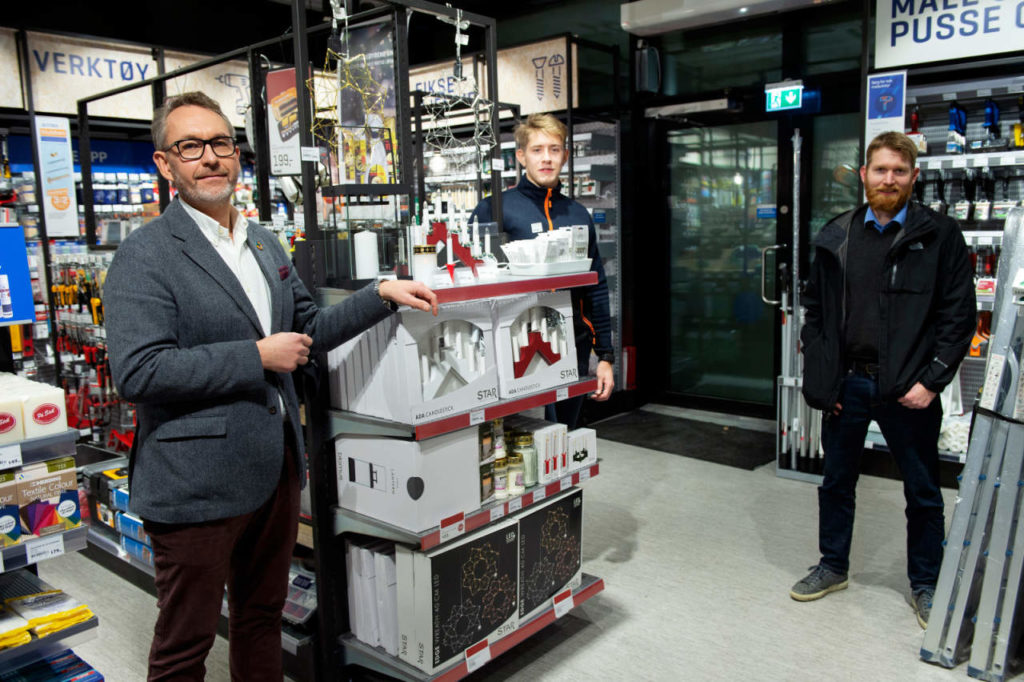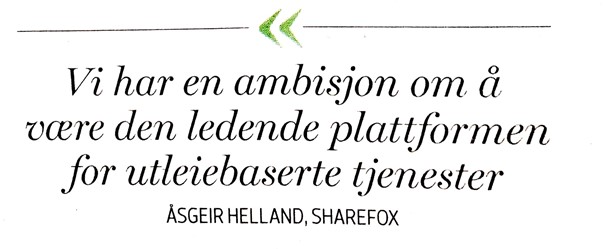

Can retail be saved by Norwegian technology companies?
what services should they offer in addition to selling goods? This is the topic Ole Martin Evensmo of SpringBoard Martech

– Those companies that dare to invest now will have a major advantage,” says the Virke boss.
Jernia believes 40 percent of its turnover will come from services in 2025. An entrepreneurial company in Oslo has started rental of park suits.
Sustainability. Reuse. Second hand. These are words that are in vogue in Norway, but which in reality are in a small parenthesis. Norwegians are at the world leaders in use and throw away. The Circularity Gap Report Norway shows that that in Norway we only put 2.6 percent of the resources we consume back back into the cycle.
– The rest we burn, bury or throw into the sea,” says Ivar Horneland Kristensen, CEO of Virke.
In comparison, the world around us stands at 8.6 percent. The Dutch lead the way with 24.5%. Our Nordic neighbors are also ahead of us.
Ivar Horneland Kristensen, CEO of Virke, says Norway must step up to avoid being left behind in the circular economy. “In Norway, we are world champions when it comes to recycling and waste management, but but it has probably become a sleeping pillow. We haven’t figured out how to take the next step. That step is to move into the circular economy where sustainability and reuse are not just buzzwords reuse are not just buzzwords, but an essential part of how people live their lives.
– The scarcity of resources that we will see in the world will affect many industries, not least the trade industry. When we also have the climate challenge, it is important that resources circulate longer and leave smaller footprint, says Horneland Kristensen.
– The green transition is not just about finding solutions in green energy, but about finding solutions for the whole economy, of which the trade and services sector is a key part.
– How is the trade industry doing?
– It is a varied picture. Some companies have taken the lead, while others have others have not come as far. In the next five years, we are going to see a big change. Those companies that dare to invest now will have a big Advantage.
In a darkened capital city stands a CEO who has chosen to bet. Jernia is now rolling out the possibility of tool rental in all its stores.
– We have prepared Jernia to survive a transformation that society as a whole must go through. Consumption must become more sustainable, says Espen Karlsen, CEO of Jernia.director of Jernia.
– More people will live in smaller apartments, have smaller sheds and thus less space to own all kinds of tools you rarely use. Rentals like this is part of the future,” he says.
– How has the response been?
– Very good. It seems like the customers have been waiting for this, says Morten Portaas, general manager of Jernia Bispevika.
Growth in retail trade has been volume-driven. Sales have increased while prices have been lower. This trend will come to an end, according to Karlsen. “The retail sector has to change. The demands will come, from both EU and national authorities. Requirements for products with recyclable materials and products that can be repaired. Jernia has started with exchange of glass, ceramics, porcelain, pots and pans – “We also have a workshop that repairs lawnmowers and chainsaws, chainsaws,” says Karlsen.

THE TRIO OF RENTAL: CEO of Jernia, Espen Karlsen, Store Manager Morten Portaas and Åsgeir Helland at Sharefox.
Jernia shall focus more on sale of services than sale of goods. By 2025, he believes 30-40 percent of the chain’s revenue will come from services. Be it rental, repair and an even broader follow-up of the customer.
“When we follow them up in this way we get extremely loyal customers,” he says.
How does profitability become when services account for so much of the revenue?
“We have just started this project and need to find a good mix to ensure profitability. But there is no doubt that the growth forward must be service driven. This is something everyone has to go through. We’re just a little early,” Karlsen replies.
He believes it is important that big companies go ahead and take responsibility. The demand for reuse needs to be increased in order for us to properly get started with the circular economy. Karlsen mentions the Jernia bags as an example. They are produced at Agder Emballasje in Bygland and are largely based on reused plastics from IVAR resortment plant at Forus in Rogaland. – It is a good example of the circular society and that major companies must take responsibility. Agder Emballasje would not have started with this if they had not received our large order.

“All the new and established rental services have a clear technology need. We are seeing an opportunity in a megatrend around reuse and reuse economy,” says Åsgeir Helland from ShareFox.
It all started with Tooler in 2016. Helland and his co-founders had a hypothesis that the circular economy would create a number of new rental and subscription models.
“We did a lot of research and mapped out the optimal customer journey for digital rental services,” says Helland.
The next thing the founders wanted was to make the platform available to other businesses, and therefore they launched ShareFox in 2018. The following year Jernia joined a pilot project with five stores. We have now passed 30 companies using our platform.
Helland sees a rental market that is maturing. This year, has 20 of these 30 companies been added to our customer list. –It’s everything from rental of sports and leisure equipments, to tools, car rental and subscriptions to children’s clothing. The Norwegian company Felleskjøpet is also a customer,” says Helland.
The platform is standardized, but developed so it can be easily adapted to different types of rental services.
– Companies don’t have to invest much in their own software. With our solution, they can quickly launch on the market.
In March this year, the EU presented an action plan for the circular economy, as part of the green growth strategy The Green Deal. It shows that the circular economy will provide 700,000 more jobs.
“The service part is going to increase quite sharply with jobs in repair and rental,” says the CEO in Virke.
Now he’s calling for more action from national authorities. The government issued a report on the circular economy before Christmas. Now it’s postponed until March.
The Government wrote on its platform that Norway should be a pioneer in the circular economy, but it has not happened yet. There is more happening in this field in the EU than in Norway, we are simply a bit behind. It’s a shame when there are so many potential jobs there. Norway can miss out on new nutritional opportunities if we don’t get started soon.